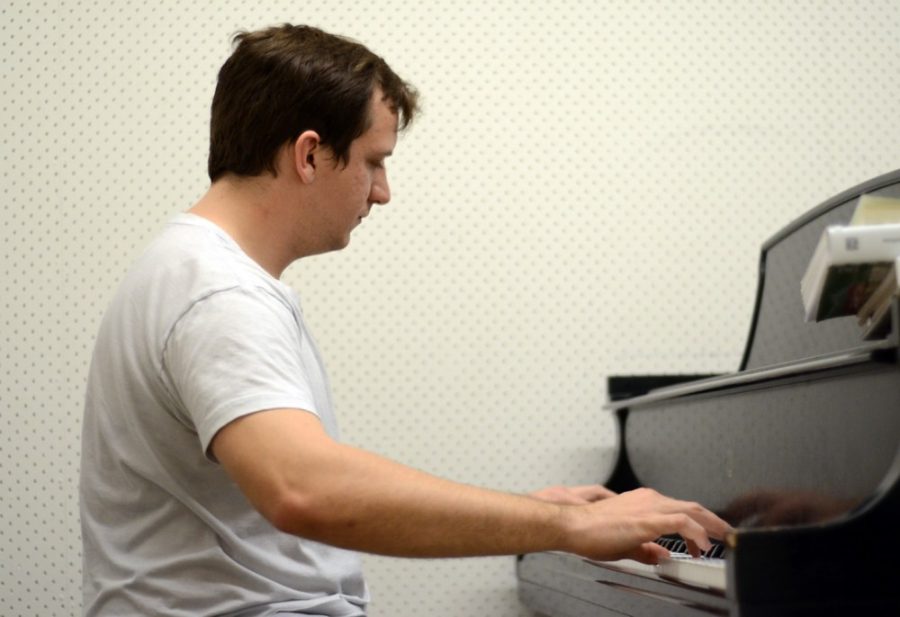The UA School of Music announces its expansion and a name change after receiving a $20 million donation.
As soon as mid-February, the School of Music will be renamed the Fred Fox School of Music. Fred Fox’s son, Alan Fox, and his wife Daveen Fox donated $20 million to the School of Music to honor the great achievements of his father, Fred Fox.
He often visited and taught at the School of Music and played as first horn for the National Symphony, the Minneapolis Symphony and the Los Angeles Philharmonic.
“[Alan Fox] thinks his father is a great musician and a great teacher, and he honors him by naming the school where I work after his father,” said School of Music associate professor Daniel Katzen, a close friend of the Fox family. “Because once a name gets on a school, it stays forever.”
The money from the donation will be used to further the music program at the UA and to provide new opportunities for scholarships for incoming students.
$2 million will be used to provide scholarships for undergraduate and graduate students with specializations in brass instruments, supporting Fred Fox’s love of playing the French horn, according to Tucson.com.
“I have a scholarship from the UA, and I know a lot of students that need one,” said Matthew Kenner, a music education freshman and trumpet player.
The gift will allow the school to come closer to achieving several of its goals, including the creation of three endowed chairs within the School of Music.
“The money that the Fox family has gifted adds security to the program and ensures its longevity,” said William Dietz, an associate professor in the School of Music. “It gave us a little bit of continuity, because before, we were really working from year to year with the funding. There was always the worry that the school of music would come up short.”
The school is currently home to the Fred Fox Graduate Wind Quintet. The family previously donated $1.25 million in 2012 that continues to be used to support the quintet.
The quintet is comprised of graduate students who have come from all over the country to study at the School of Music. These students are pursuing master’s degrees in each of their individual instruments and undergo auditions in order to play in the quintet. The quintet’s main event will be on April 24.
“[Fox] has worked and coached the quintet,” Dietz said. “He’s given a few classes, to master classes talking about breathing when playing a wind instrument, and stage performance to a large group of students with different instrumental backgrounds.”
The School of Music has previously received two $3-million donations.
Katzen brought Fred Fox into his classroom because of his great respect and admiration for his mentor and friend.
“Ever since I’ve been here, I’ve brought him in to teach my students, like he taught me,” Katzen said. “[He] is an extremely talented teacher, and even though I’ve been a professional for 40 years, I still remember his teaching and how he expects people to play. I still take lessons from him when he’s here just to make sure I’m not doing anything stupid.”
A large portion of the Fox family’s donation will go toward scholarships.
“Music is basically working to be poor,” said Ashley Aron, a student studying trombone in the School of Music. “So, any money would be appreciated. I know a lot of students that just need [about] $1,000 more to be comfortable.”
The gift furthers the ability of the School of Music to grow and really put its name on the map.
“It is a small community of students that are looking to do graduate studies,” Dietz said. “So, they learn quickly when a gift like this has been announced, and down the road, it will help a lot. The quintet will be the only group to carry that name, so that makes it all the sweeter.”
At the 2011 San Francisco International Horn Symposium Fred Fox, at the age of 97, was honored by receiving the prestigious Punto Award for his contribution to the art of horn playing.
At the age of 100, Fred Fox continues to pursue his passions in playing horn and teaching students.
“He’s very spry; he gets around here very well,” Dietz said. “[You] can put him up against a group of students — 30 or 40 at a time — and he is talking to them, and listening to them, and hearing them play, and helping them with breathing and preforming. It’s the kind of thing that you can’t write down: his sense of history and his sense of experience in playing for so many years.”
_______________
Follow Tirion Rose Morris on Twitter.









